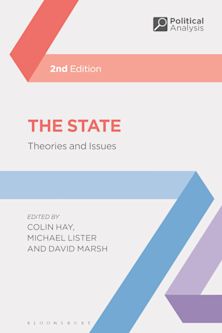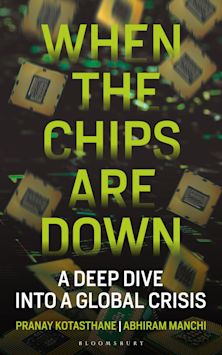- Home
- ACADEMIC
- Politics & International Relations
- International Relations - Other
- Australian Foreign Policy
Australian Foreign Policy
Relationships, Issues, and Strategic Culture
- Textbook
Australian Foreign Policy
Relationships, Issues, and Strategic Culture
- Textbook
Inspection copy added to basket
Choose your preferred format. If you would prefer an ebook and it is not displayed below, please visit our inspection copies page.
Please note ebook inspection copies are fulfilled by VitalSource™.
Buy from Bloomsbury eTextBooks
You are now leaving the Bloomsbury Publishing website. Your eBook purchase will be with our partner https://www.vitalsource.com.
Your credit card statement will show this purchase originating from VitalSource Technologies. They will also provide any technical assistance you might require.
You must sign in to add this item to your wishlist. Please sign in or create an account
Description
How does Australia's unique geographical, cultural and historical position influence its approach to foreign policy? What key challenges does Australia face on the world stage, and how can it overcome them?
Reflecting the messy reality of foreign policy decision-making, this book helps you to understand the changes and continuities in Australia's approach. For example, does the US withdrawal from Vietnam in 1973 and collapse of South Vietnam continue to cast a shadow over Australian foreign policy, or is it relevant only in understanding the dynamics of the cold war? Using an Australian Strategic Culture framework, O'Keefe sheds light on the characteristics that make Australia behave in a way different to any other country and equips you with analytic skills to understand the main debates, such as:
- In what sense could Australia be seen as a 'good' international citizen?
- Have national interests trumped global responsibilities?
- How does the intersection between civil society and public opinion interact with foreign policy making?
This book is essential reading if you are a student of Australian foreign policy, as well as of broader Australian domestic politics and international relations.
Table of Contents
1. How Do We Explain Australian Foreign Policy?
2. Australian Strategic Culture as Theory
3. The Making of the Unbreakable Alliance with the United States
4. Alignment with the US in the 21st Century
5. Background to China as a Threat and Trading Partner
6. China as a Strategic Competitor in the 21st Century
7. The Evolution of Japan from Threat to Trading Partner
8. Japan as a 'Special' Strategic Partner in the 21st Century
9. The Fractured History of Diplomacy with Indonesia
10. Indonesia's Proximity and the Unrealisable Potential of Dissimilar Neighbours
11. The Legacy of Colonialism in Australia's Relations with the Diverse South Pacific Region
12. Australia's 'Hegemonic' Credentials in the South Pacific Under Challenge in the 21st Century
13. The Politicisation of Official Development Assistance (ODA) as a Foreign Policy Tool
14. Realism and the Limits of Climate Securitisation in Australian Foreign Policy
15. Asylum Seekers as a Threat to Australian Sovereignty: Buttressing Realism and the Intergenerational Appeal of Strategic Culture
16. Overview and Conclusion
Product details

| Published | 10 Aug 2023 |
|---|---|
| Format | Ebook (PDF) |
| Edition | 1st |
| Extent | 424 |
| ISBN | 9781350369382 |
| Imprint | Bloomsbury Academic |
| Publisher | Bloomsbury Publishing |
About the contributors
Reviews
-
The comprehensive interpretation of Australian foreign policy makes this book one of the finest accounts of the subject to have appeared in a long time. It will be an invaluable resource for students, lecturers, policy analysts and media commentators focusing on Australian foreign policy.
Allan Patience, University of Melbourne, Australia
-
This richly documented study goes beyond realism and liberalism to explain how strategic culture has shaped Australian foreign policy, and now challenges those who seek new directions for the nation.
Geoffrey Hawker, Macquarie University, Australia
-
This book reveals a surprising degree of continuity in how Australia has engaged internationally. O'Keefe's passion for enriching our understanding and analysis of Australian foreign policy permeates this book-a desire matched only by the contemporary need for such analyses given the rapidly changing geopolitical environment.
Benjamin Day, Australian National University, Australia
-
O'Keefe skilfully highlights Australia's distinctive strategic culture as a critical driver of its foreign policy. This well-structured, pragmatic analysis offers significant insight for students keen on understanding the practicalities of foreign policy making – an invaluable addition to any bookshelf.
Mark Dinnen, Bond University, Australia
-
Building on the concept of strategic culture, this book provides a much-needed, theoretically informed and empirically rich analysis of contemporary Australian foreign policy.
Matt McDonald, University of Queensland, Australia
-
Australian Foreign Policy provides an accessible and essential primer for students of Australia's foreign relations, challenging us to think more critically about the significant events, relationships and ideas that shape Australia's future.
Danielle Chubb, Deakin University, Australia


































